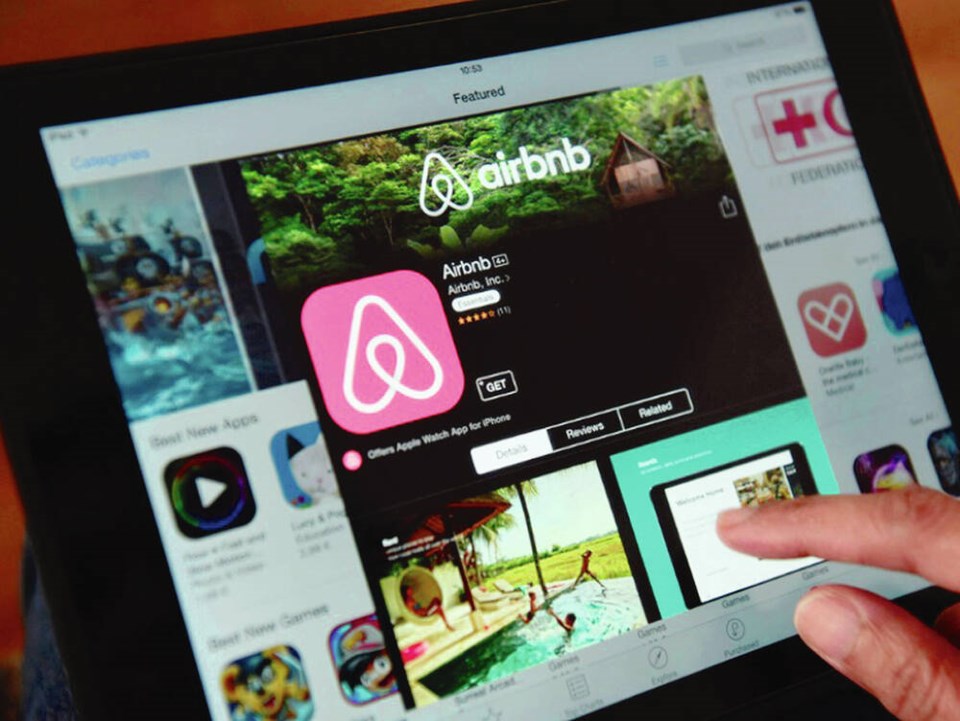B.C. and Vancouver have made it tougher in recent months for some property owners to operate on short-term rental platforms such as Airbnb and VRBO. Now it looks like the federal government is joining the fight.
According to a report in the Toronto Star, the feds are going to use the tax system to make operating short-term rentals less lucrative.
Citing a source in the federal government, the Star reports that Tuesday’s economic update will include measures to prevent some short-term rental operators in areas that already restrict the practice from deducting expenses from what they earn through their rental suites.
The goal, which will increase their taxable income, is to reduce the incentive to flout local restrictions.
The tax changes will take effect in 2024 and only apply to operators that are not abiding by provincial and municipal rules governing short-term rentals.
The move comes a month after federal Finance Minister Chrystia Freeland said she would introduce measures to get homeowners to convert their short-term rental suites and rooms into long-term rentals.
“We know that short-term rentals through sites like Airbnb and VRBO mean fewer homes for Canadians to rent and live in full time, especially in urban and populated areas of our country,” Freeland said on Oct. 17.
“That is why our government is actively examining what options and tools exist at the federal level, to ensure more short-term rentals are made available as long term-rentals, as permanent homes, for Canadians to live in.”
Freeland’s comments came the same month the B.C. government introduced a range of measures to force short-term rental operators to put their units onto the long-term rental market.
That included a warning from B.C. Housing Minister Ravi Kahlon that some short-term rental operators “should probably be thinking about a new profit scheme in the very near future.”
The provincial government’s new rules mean a person who operates a short-term rental must also live in the house or suite, and they are limited to renting out just one suite within the house or bedrooms in the suite.
The province is also going to provide municipalities with resources to crack down on operators that don’t operate according to municipal bylaws controlling short-term rentals.
Steve Saretsky, a Vancouver-based real estate agent and analyst, said it was inevitable that the federal government would join the provincial and municipal crackdown on short-term rental suppliers.
“It’s a convenient scapegoat and I am not surprised by the efforts to squash it,” he said.
A Vancouver-based Airbnb critic who goes by Mortimer on the social-media site X and regularly outs Airbnb listings that are flouting the rules, said that while the exact details of the new Canada Revenue Agency rules need to be released, he expects the policy will have a greater effect on commercial operators of short-term rentals.
“Separately, the federal government should also be focused on policies that encourage greater tax compliance, both with short-term rentals and long-term rentals,” Mortimer said. “The amount of undeclared rental income in Canada, both on long-term and short-term rentals, is a revenue source the federal government should be examining closely.”
Ron Butler, the president of one of Canada’s largest mortgage companies, said that when he was in Ottawa 10 days ago, the federal government’s plan to reduce the short-term rental supply was a topic of much discussion.
Butler said that when it comes to housing, the federal government’s only tools are interest rates and taxation.
He pointed out that the new rules would not apply to operators who abide by local regulations.
For example, in B.C., a homeowner who lives in their home and has a suite on Airbnb would still be able to make tax deductions on income earned.



